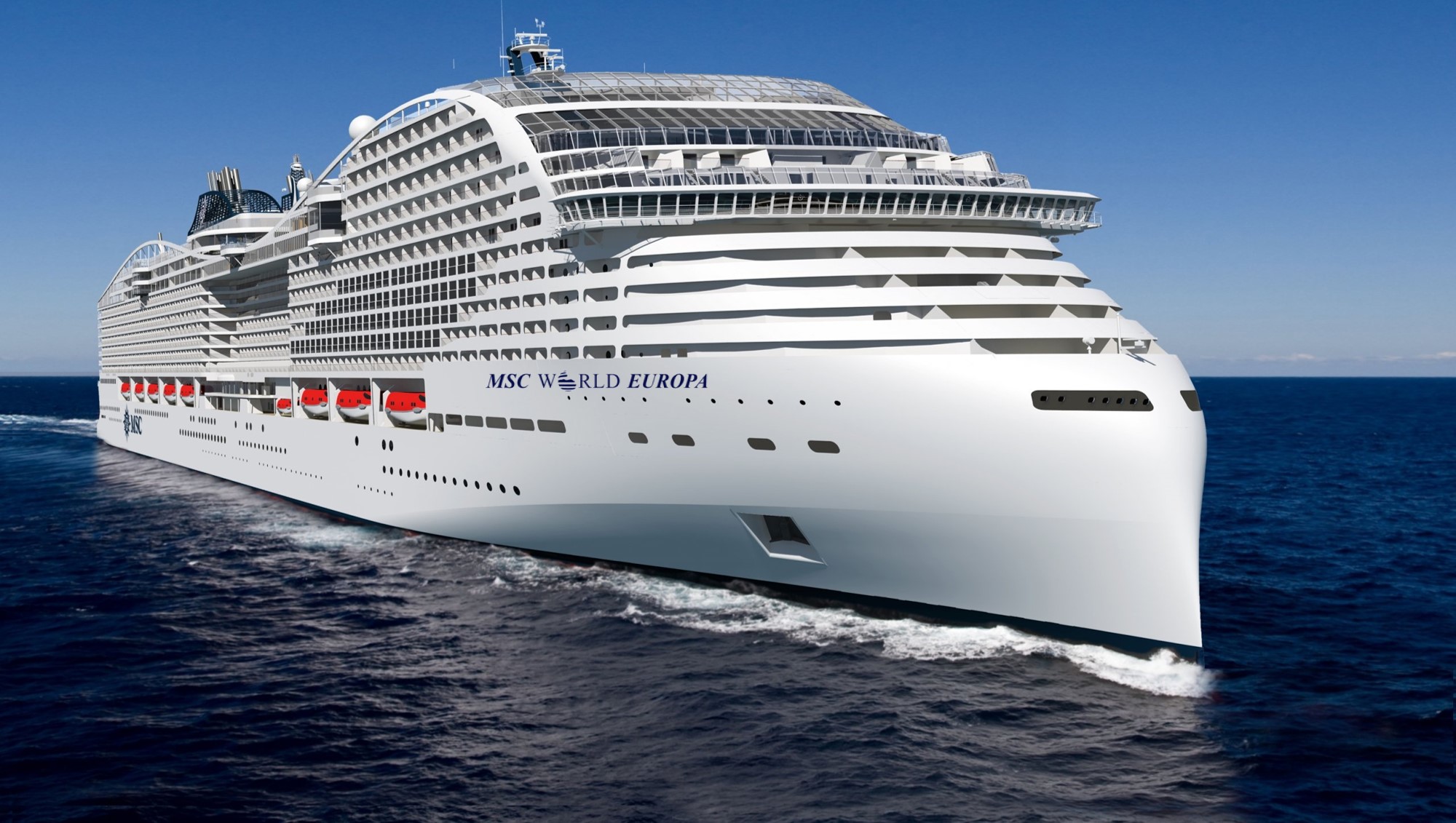
Geneva, Switzerland (March 25, 2021) — MSC Cruises and Total announced today a supply agreement for approximately 45,000 tons per year of Liquefied Natural Gas (LNG) for MSC Cruises’ upcoming LNG-powered cruise ships.
Pierfrancesco Vago, MSC Cruises’ Executive Chairman, said: “This agreement represents a further step in our ongoing journey towards continuously reducing our environmental footprint, for which LNG is currently a crucial component. As we prepare to launch our first of three upcoming LNG-powered cruise ships in 2022, through this key agreement we have now secured the refueling support for our latest-generation and most environmentally advanced ships in the Mediterranean.”
Used as a marine fuel, LNG sharply reduces emissions from ships, resulting in a significant improvement in air quality, particularly for communities in coastal areas and port cities. This agreement therefore impacts positively not only the place where LNG bunkering will take place, Marseilles, but also all the ports where the cruise ships will make their future calls around the Mediterranean Sea.
MSC Cruises’ LNG powered vessels will be among the most technologically advanced cruise ships in the world, bringing a range of environmental innovations to the market. Chief amongst these is a 50-kilowatt, LNG-powered solid oxide fuel cell technology project that offers a potential to reduce greenhouse gas emissions by a further 25% compared to a conventional LNG engine.
Total will bunker MSC Cruises’ LNG-powered cruise ships sailing on Mediterranean routes by ship-to-ship transfer, using its second LNG bunker vessel currently under construction. This vessel will meet the highest technical and environmental standards, using LNG herself as propulsion fuel and integrating a complete re-liquefaction of the boil-off gas.
LNG as a marine fuel
LNG as a marine fuel has gained positive momentum as the global shipping industry looks to adapt to stricter emissions standards.
Used as a marine fuel, LNG helps to cut:
Sulfur emissions by 99%,
Fine particle emissions by 99%,
Nitrogen oxide emissions by up to 85%,
Greenhouse gases emissions by around 20%.
LNG represents an available and competitive solution that contributes to the International Maritime Organization’s (IMO) long-term strategy of reducing greenhouse gas emissions from ships. Traction in developing LNG bunkering infrastructure has consequently expanded with several leading ports and LNG bunker suppliers alike having established key initiatives and made significant progress in support of these developments. LNG as a marine fuel also lays the foundation for the introduction of greener bioLNG in the future.
About MSC Cruises
MSC Cruises is the world’s third largest cruise brand as well as the leader in Europe, South America, the Gulf region and Southern Africa with more market share in addition to deployed capacity than any other player. It is also the fastest growing global cruise brand with a strong presence in the Caribbean, North America and the Far East markets.
Headquartered in Geneva, Switzerland, MSC Cruises one of the two brands that sit within the Cruises Division of MSC Group, the leading privately held Swiss-based shipping and logistics conglomerate with over 300 years of maritime heritage. MSC Cruises — the contemporary brand — has a modern fleet of 18 vessels combined with a sizeable future global investment portfolio of new vessels. The fleet is projected to grow to 23 cruise ships by 2025 with options for six vessel orders in place through 2030.
MSC Cruises offers its guests an enriching, immersive and safe cruise experience inspired by the Company’s European heritage, where they can enjoy international dining, world-class entertainment, award-winning family programs and the very latest user-friendly technology on board. To learn more about MSC Cruises’ itineraries and experience on board its ships please see here.
The Company’s number one priority has always been the health and safety of its guests and crew, as well as the communities at the destinations its ships serve. In August 2020, MSC Cruises implemented a new comprehensive and robust health and safety protocol to become the first major line to return to sea. To learn more about MSC Cruises’ health & safety protocol please see here.
MSC Cruises has long been committed to environmental stewardship with a long-term goal to achieve zero emissions for its operations. The Company is also a significant investor in next-generation environmental marine technologies, with the objective to support their accelerated development and availability industry wide. To learn more about the Company’s environmental commitment please see here.
Finally, to learn more about the MSC Foundation, MSC Group’s own vehicle to lead, focus and advance its conservation, humanitarian and cultural commitments please see here.